Views: 23
The Rise Of Organic Farming In Nigeria: Opportunities And Challenges
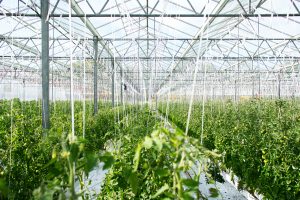
More and more people in Nigeria are showing interest in organic farming, a method of growing crops that avoids using synthetic chemicals. Instead, it focuses on natural ways to protect and nourish plants, which helps keep the soil rich and the environment healthy. This shift is happening because people are getting more concerned about their well-being and the environment. Many Nigerians now prefer organic food because they believe it is safer and more nutritious. They want to know that the food they eat is free from harmful chemicals.
Farmers are also beginning to understand the long-term benefits of organic farming. By using natural methods, they can make the soil more fertile and manage pests without depending on chemical products. Over time, this can lead to better harvests and lower farming costs.
The Nigerian government is encouraging this change by offering training programs and incentives to help farmers switch to organic methods. They teach useful techniques like crop rotation, composting, and using organic fertilizers and biopesticides. These practices help maintain healthy soil and reduce damage to the environment.
As more people see the opportunities of organic farming—both for their food and the planet—it is becoming a growing movement in Nigeria. This approach to farming supports the goal of producing enough food while also taking care of nature for future generations.
How to start agricultural business from scratch in Nigeria
Opportunities of Organic Farming in Nigeria
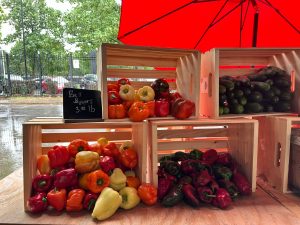
In Nigeria, organic farming is bringing many good changes. It helps the environment, improves people’s health, and supports small farmers. This kind of farming reduces pollution by avoiding harmful chemicals. It also makes the soil stronger and keeps it healthy for a longer time. The food grown through organic methods is often fresher and better for health. When Nigerian farmers use organic practices, they can earn more and live better. It gives them a chance to grow safe food while also protecting the land they work on. Here are some opportunities in organic farming.
- Opportunities for Small-scale Farmers
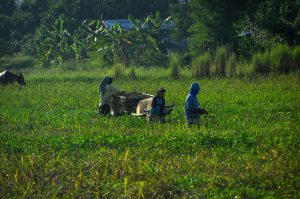
In Nigeria, organic farming is helping small-scale farmers build better lives. It gives them a chance to grow food in a way that costs less and is kinder to the land.
One big advantage is that organic farming doesn’t need expensive chemical products. Instead, farmers use natural fertilizers and pest control, which are often cheaper and easier to find nearby. This helps them save money on farming.
Also, organic food usually sells at higher prices. Many people are willing to pay more for food they believe is healthier and better for the environment. This means farmers can earn more and have a steadier income.
Organic farming also focuses on taking care of the soil and the environment. It helps farmers keep their land productive for a long time, so they can continue farming well into the future. These practices protect the land for the next generation.
Also, learning and sharing knowledge are a big part of organic farming, too. Farmers often work together, share ideas, and help each other solve problems. This creates a strong farming community that keeps improving and growing.
- Environmental Opportunities of Organic Farming
Organic farming is a great way to take care of the environment in Nigeria and beyond. One big opportunity of organic farming is that it cuts down on pollution. Since it doesn’t use chemical fertilizers or pesticides, harmful substances don’t end up in rivers and lakes. Instead, natural pest control and organic fertilizers are used, which keep the water clean and protect fish and other water animals.
Another important opportunity is better soil health. Organic farmers use things like compost, animal manure, and crop rotation. These add nutrients to the soil, making it more fertile and productive. They also help the soil hold water better and stop it from being washed away.
Organic farms also support more wildlife. Because no harmful chemicals are used, birds, insects, and other helpful animals can live and grow there. This mix of living things, or biodiversity, helps farms by naturally keeping pests away and making sure crops get pollinated.
- Health Opportunities of Eating Organic Produce
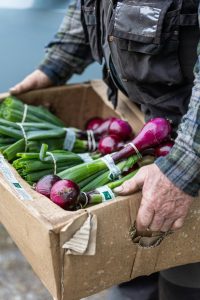
Eating organic food can help people stay healthier in many ways. One of the biggest advantages is that organic fruits and vegetables don’t have synthetic pesticides or chemical leftovers on them.
They also have more vitamins, minerals, and antioxidants. These are important nutrients that help the body stay strong and fight off sickness.
Organic food also lowers the chance of taking in harmful chemicals. In regular farming, chemical pesticides are used, and they can lead to serious health problems like cancer or hormone issues. Choosing organic food helps people avoid these risks.
Many people also say that organic food tastes better. Since no chemical fertilizers or pesticides are used, the natural taste of the food stands out more. Fruits and vegetables often have a fresher and richer flavor when they’re grown organically.
Simple ways to choose the right products for your farm
Challenges of Organic Farming in Nigeria
- Lack of support from the government and Orientation
One big problem facing organic farming in Nigeria is that many people don’t know much about it, and the government isn’t giving enough help.
A lot of farmers don’t understand the benefits of organic farming. Without proper information and training, they find it hard to try these new methods.
Government support is very important to help more farmers learn about organic farming and start using it. Without this support, it’s difficult for the organic farming movement to grow.
- Difficulty in accessing organic inputs and materials
Another big challenge for organic farmers in Nigeria is getting the right materials they need.
Organic fertilizers and natural pesticides are often hard to find and cost a lot. Because of this, many farmers struggle to keep up with organic farming.
This makes it harder for the sector to grow and causes some farmers to give up on using organic methods.
- Marketing organic produce in a competitive market

Selling organic food is also a big challenge for farmers in Nigeria. Even though more people want organic products, regular farmers often sell their food at cheaper prices. This makes it hard for organic farmers to compete and sell their produce. As a result, many organic farmers find it tough to make good money from their hard work.
Common organic farming practices in Nigeria
In Nigerian organic farming, farmers use several methods to keep the soil healthy and reduce the need for chemicals.
Composting: By turning organic waste into compost, farmers create nutrient-rich soil that helps plants grow better.
Crop Rotation: To prevent soil from losing its nutrients and to stop pests from spreading, farmers change the crops they plant in different seasons.
Mulching: Using materials like straw and leaves on the soil helps keep moisture, stops weeds from growing, and improves the soil’s structure.
Natural Pest Control: Instead of chemicals, farmers encourage helpful insects like ladybugs and birds that eat pests. This keeps the pests in check without harming the environment.
Intercropping: Planting different crops together helps to use space wisely, keeps pests away, and improves the soil.
Cover Cropping: Farmers plant certain crops during the off-season to protect and improve the soil.
Natural Fertilizers and Pesticides: In organic farming, compost, manure, and green manure are used to feed plants. For pest control, farmers use natural options like neem oil, garlic spray, and pepper spray.
Conclusion
Organic farming is vital for sustainable agriculture in Nigeria. It improves soil health, protects biodiversity, and reduces the use of chemicals, creating healthier ecosystems.
By using organic methods, farmers help the environment and produce safer food, ensuring long-term farming success. Organic farming also makes life better for farmers by cutting down on chemical exposure and increasing their profits.
As Nigeria works towards food security and a healthier environment, organic farming offers a great solution. This method benefits not only individual farms but also helps the country as a whole. By adopting organic farming, Nigeria moves closer to sustainable agriculture that supports both the land and its people.
By kingkentus





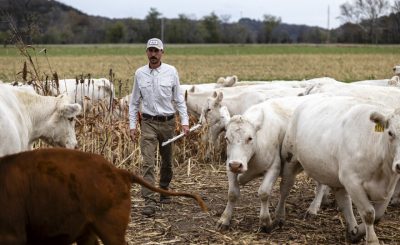


You must be logged in to post a comment.